Protect, restore and promote sustainable use of terrestrial ecosystems, sustainably manage forests, combat desertification, and halt and reverse land degradation and halt biodiversity loss.

Protect, restore and promote sustainable use of terrestrial ecosystems, sustainably manage forests, combat desertification, and halt and reverse land degradation and halt biodiversity loss.
Having a holistic view of the territory is Urban Planning Management’s main objective. With it, city council administrators can strategically plan and seamlessly manage in real-time the territory via a portal that centralizes all the information about property management and assets under the chamber’s jurisdiction and enables the management of processes and associated documentation.
It is also worth noting the system comprises a geographical database with every registration attached, such as land licenses, roads, and municipal infrastructures.
In developing economies, Urban Planning Management implementation might translate into a greater amount of fiscal revenues and a reduced amount of tax evasion for local governments and the empowerment of the people who can have full control over their resources.
Potential Impact of this Product on the 15th SDG
15.9 By 2020, integrate ecosystem and biodiversity values into national and local planning, development processes, poverty reduction strategies and accounts.
Cities which already adopted this product
Maputo
Access to running water, basic sanitation, and urban waste is the foundation stone of a developed society. Poor infrastructure can lead to both spread of diseases and the waste of resources – both hurdles can cost vast amounts of money to solve.
The Water Resources Management Tool was created with these issues in mind. It enables holistic management of the water supply and waste disposal systems and answers to all the operational and commercial details of this sector. Thanks to artificial intelligence (AI), the solution is also an enabler to finding water leaks, infiltrations in the sewage network, and abusive water consumption.
Moreover, the integrated solution will help you save resources with its AI-propelled predictive maintenance feature, which can anticipate pipe malfunctions.
Potential Impact of this Product on the 15th SDG
15.1 By 2020, ensure the conservation, restoration and sustainable use of terrestrial and inland freshwater ecosystems and their services, in particular forests, wetlands, mountains and drylands, in line with obligations under international agreements.
Given the multiple variables at stake, having a holistic view of a country’s revenue/tax collection and expenditures can be challenging. However, not having a vision of the balance can be a more demanding challenge for decision-makers. Quidgest’s approach on this subject is complex but simple to understand: centralize all the information in a single platform by providing common ground corporate services.
Individual departments usually carried out something that is now done a single time, reducing unnecessary duplication of effort, harmonizing policies, and consolidating relevant data under a single umbrella platform. Transparency, international credibility, and better resource management are some of the benefits of Quidgest’s Public Finance Shared Services solution.
Potential Impact of this Product on the 15th SDG
15.a Mobilize and significantly increase financial resources from all sources to conserve and sustainably use biodiversity and ecosystems
Institutions which already adopted this solution
Coordination and Regional Development Committees (Portugal); Portuguese Accreditation Institute (IPAC); Attorney General’s Office (Portugal); International Relations Fund (Portugal); National Institute for Agricultural and Veterinary Research (Portugal); Portuguese National Assembly
15.1 By 2020, ensure the conservation, restoration and sustainable use of terrestrial and inland freshwater ecosystems and their services, in particular forests, wetlands, mountains and drylands, in line with obligations under international agreements;
15.2 By 2020, promote the implementation of sustainable management of all types of forests, halt deforestation, restore degraded forests and substantially increase afforestation and reforestation globally;
15.3 By 2030, combat desertification, restore degraded land and soil, including land affected by desertification, drought and floods, and strive to achieve a land degradation-neutral world;
15.4 By 2030, ensure the conservation of mountain ecosystems, including their biodiversity, in order to enhance their capacity to provide benefits that are essential for sustainable development;
15.5 Take urgent and significant action to reduce the degradation of natural habitats, halt the loss of biodiversity and, by 2020, protect and prevent the extinction of threatened species;
15.6 Promote fair and equitable sharing of the benefits arising from the utilization of genetic resources and promote appropriate access to such resources, as internationally agreed;
15.7 Take urgent action to end poaching and trafficking of protected species of flora and fauna and address both demand and supply of illegal wildlife products;
15.8 By 2020, introduce measures to prevent the introduction and significantly reduce the impact of invasive alien species on land and water ecosystems and control or eradicate the priority species;
15.9 By 2020, integrate ecosystem and biodiversity values into national and local planning, development processes, poverty reduction strategies and accounts;
15.A Mobilize and significantly increase financial resources from all sources to conserve and sustainably use biodiversity and ecosystems;
15.B Mobilize significant resources from all sources and at all levels to finance sustainable forest management and provide adequate incentives to developing countries to advance such management, including for conservation and reforestation;
15.C Enhance global support for efforts to combat poaching and trafficking of protected species, including by increasing the capacity of local communities to pursue sustainable livelihood opportunities.
Quidgest is a global technology company headquartered in Lisbon and a pioneer in intelligent software modeling and generation. Through its unique generative AI platform, Genio, develops complex, urgent, and specific systems, ready to evolve continuously, flexible, and scalable for various technologies and platforms. Partners and large organizations such as governments, multinational companies, and global multilateral institutions use Quidgest’s solutions to achieve their digital strategies.
R. Viriato, 7
1050-233 Lisboa | Portugal
Tel. +351 213 870 563
quidgest@quidgest.com